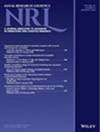自动车辆存取系统中的无阻塞存储分配和存取调度
IF 2.1
4区 管理学
Q3 OPERATIONS RESEARCH & MANAGEMENT SCIENCE
引用次数: 0
摘要
自动车辆存储和检索系统在过去十年中得到了极大的普及。在这样的系统中,每一层都有多个漫游车辆在存储地点和电梯之间运输行李。然而,这可能会导致车辆干扰。我们研究了在没有车辆干扰的情况下,存储和检索请求应该以何种顺序和由哪种车辆执行,以最小化完工时间。还确定了来料的最佳存储位置。针对车辆干扰,提出了一种阻塞缓解协议。我们提出了一种两阶段的数学方法,在第一阶段,将层划分为区域,每个区域分配自己的车辆。第二阶段的重点是在相邻车辆之间重新分配请求,以获得改进的解决方案。这两个阶段的模型分别在多项式时间和伪多项式时间内得到最优解。计算实验表明,即使对于大型实例,该数学方法也可以在几秒钟内产生高质量的解,使其适合于实时决策。与实践中常用的方法相比,我们的数学方法可以将完工时间减少15%。我们的研究结果表明,在吞吐量性能、空间利用率和总体系统成本方面,做出结合存储分配和请求调度的集成决策比顺序优化更有利。我们还发现,车辆数量的增加对最大完工时间的收益递减效应。另一个发现是,具有大量短存储通道的系统比具有少量长存储通道的系统具有更高的吞吐量。本文章由计算机程序翻译,如有差异,请以英文原文为准。
Blockage-free storage assignment and storage/retrieval scheduling in autonomous vehicle storage and retrieval systems
Autonomous vehicle storage and retrieval systems have greatly increased in popularity in the last decade. In such a system, at each tier multiple roaming vehicles transport totes between the storage locations and the lifts. However, this may lead to vehicle interference. We study in which order and by which vehicle the storage and retrieval requests should be executed to minimize the makespan, without vehicle interference. The optimal storage locations for incoming totes are also determined. A blocking mitigation protocol is proposed to address vehicle interference. We propose a two-phase matheuristic, where in the first phase, the tier is divided into zones, with each zone assigned its own vehicle. The second phase focuses on reassigning requests between adjacent vehicles to obtain improved solutions. The models proposed in both phases are solved to optimality in polynomial time and pseudo-polynomial time, respectively. Computational experiments show that the matheuristic produces high-quality solutions within a few seconds, even for large-sized instances, making it suitable for real-time decisions. Compared to methods commonly used in practice, our matheuristic can reduce the makespan by up to 15%. Our results show that making integrated decisions that combine storage assignment and request scheduling, is more beneficial than sequential optimization in terms of throughput performance, space utilization and overall system cost. We also find that increasing the number of vehicles has a diminishing return effect on the makespan. Another finding is that the system with a large number of short storage aisles leads to higher throughput capacity than that with a small number of long storage aisles.
求助全文
通过发布文献求助,成功后即可免费获取论文全文。
去求助
来源期刊

Naval Research Logistics
管理科学-运筹学与管理科学
CiteScore
4.20
自引率
4.30%
发文量
47
审稿时长
8 months
期刊介绍:
Submissions that are most appropriate for NRL are papers addressing modeling and analysis of problems motivated by real-world applications; major methodological advances in operations research and applied statistics; and expository or survey pieces of lasting value. Areas represented include (but are not limited to) probability, statistics, simulation, optimization, game theory, quality, scheduling, reliability, maintenance, supply chain, decision analysis, and combat models. Special issues devoted to a single topic are published occasionally, and proposals for special issues are welcomed by the Editorial Board.
 求助内容:
求助内容: 应助结果提醒方式:
应助结果提醒方式:


